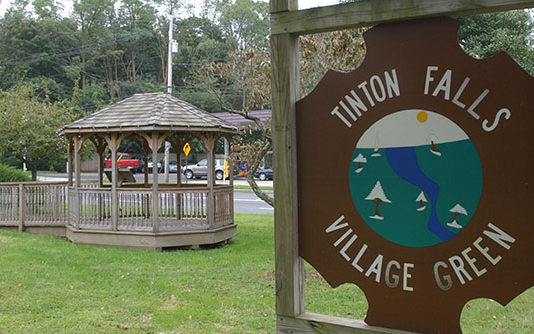TINTON FALLS – Municipal officials are continuing to press for corrective action after Monmouth County officials accepted blame for an odor that is coming from the Monmouth County Reclamation Center and impacting residents’ quality of life.
The reclamation center, which accepts garbage from the county’s municipalities, is at 6000 Asbury Ave., Tinton Falls.
“This (action plan) came together and it serves a purpose … We are saying to the Monmouth County Reclamation Center and the people who oversee it that they didn’t do their job. They admitted it,” Tinton Falls Borough Council President Gary Baldwin said during a meeting of the governing body on Feb. 5.
That evening, Business Administrator Mike Skudera suggested items for the consideration of municipal and county officials, as well as for members of the Monmouth County Regional Health Commission and the New Jersey Department of Environmental Protection (DEP).
The items are listed in an action plan that officials said could help diminish the odor, provide the public with timely updates about the landfill and provide suggestions toward how the odor could be monitored.
According to county officials, the stench coming from the reclamation center is caused by landfill gas, leachate (water that comes into contact with garbage) and a four-month construction project at the property. The project concluded on Jan. 15, officials said.
Skudera mentioned the use of incinerators to burn garbage. The concept of burning garbage was suggested by members of the public during a meeting. Residents said they believe burning garbage could help eliminate some of the odors that come from the reclamation center.
Skudera said five incinerators currently operate in New Jersey.
Baldwin said county residents rejected a plan to construct an incinerator at the landfill years ago.
“So, how can we advocate for change?” Skudera asked.
Skudera said the health commission should research what type of equipment could be beneficial to officials who are recording odors, saying “(officials) use their nose” to determine the severity of the stench.
Under the law, he said the DEP does not allow odor recording equipment to be used, but did not state why these types of devices are prohibited.
Skudera proposed that county officials explore upgrades to landfill gas flares, implement an “advanced odor control system,” improve the monitoring of gas emissions and use drones to record aerial footage of the reclamation center, among several other suggestions.
“Monmouth County is encouraged to explore and implement the use of drones and infrared camera technology to collect and measure real-time, three-dimensional data of its landfill gas emissions, as this could help to identify areas of inefficiency and pinpoint areas that have a build-up of gases,” Skudera said.
He said “complaints that don’t meet the statutory guidelines” should still be pursued by officials.
Residents had expressed concern with the formal process they said they were unaware of in order to submit complaints about the odor. When complaints are not formally submitted, Skudera said, they are not pursued further.
Skudera said he is advocating for increased access to the reclamation center.
Currently, Skudera said, officials cannot access the landfill at certain times of the day or night. He said limited access becomes problematic when a complaint is filed, but an official cannot inspect the landfill after it has closed for the day.
“Monmouth County is also encouraged to post information about the landfill on its website,” Skudera said.
During the month-long discussion of the landfill, officials acknowledged there is a constant odor emanating from the site.
Geoff Perselay, Monmouth County’s deputy administrator, acknowledged he did not contact Tinton Falls officials before the construction project that exacerbated that odor began.
Officials, residents of Tinton Falls and residents of neighboring towns have said any odor is unacceptable and disrupts their quality of life.
Following Skudera’s presentation regarding possible corrective actions, Councilwoman Nancyanne Fama said, “For the people who have lost their ability to feel happy in their home and whose property values have been impacted, (the county’s negligence) is unacceptable.”
On Feb. 8, Councilman Christopher Pak, who lives near the reclamation center, said, “it will take more time to judge” whether the odor has diminished since the construction project ended. Pak said there has been “no substantial change.”
In a subsequent interview the same day, Skudera said he also has not noticed a substantial change in the severity of the odor at the reclamation center.
To view the presentation, visit www.tintonfalls.com.
In a report issued on Feb. 8, state Sen. Vin Gopal (D-Monmouth) said, “the (NJDEP) is conducting ongoing tests of hydrogen sulfide emissions coming from the reclamation center. Today’s test showed a peak hydrogen sulfide emission of 5 ppb (parts per billion), well below the regulatory limit of 30 ppb … We don’t expect any adverse health effects” from the emissions.

